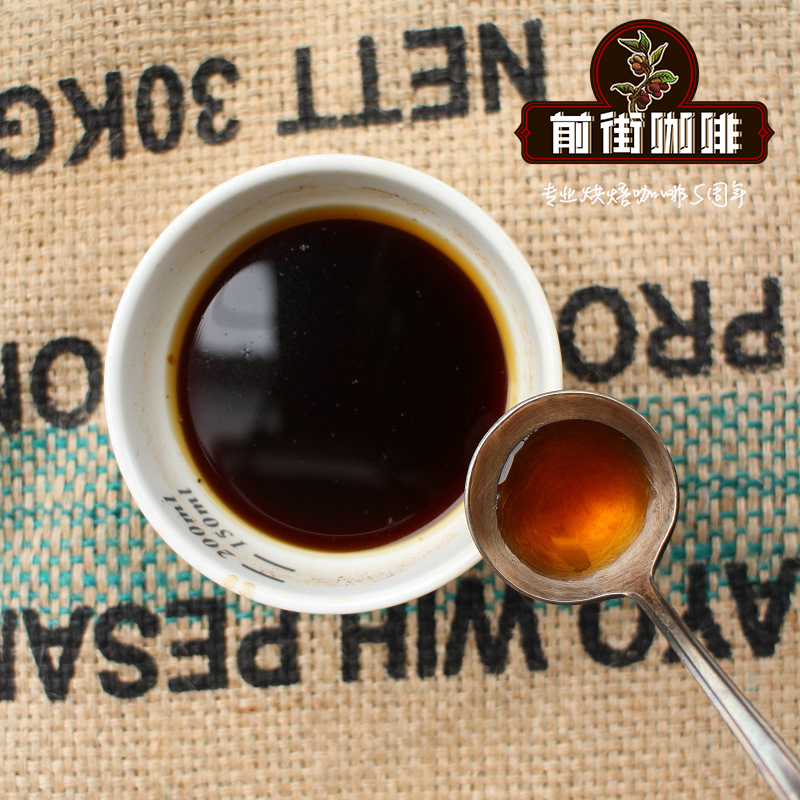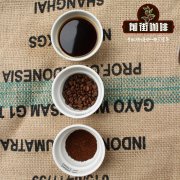Brazilian coffee bean grade characteristics and story Brazilian coffee bean import and export data

Professional coffee knowledge exchange more coffee bean information please follow the coffee workshop (Wechat official account cafe_style)
Friends who are familiar with Brazilian coffee must know that Brazil not only has high-quality high-quality coffee, but also an indispensable basic bean in many blended coffees. Brazilian coffee beans are characterized by peace, so that people do not have to have too much burden on bitter and sour taste, smooth taste, suitable for pairing with all kinds of coffee. The gentleness of Brazilian coffee is also closely related to the conditions of Brazilian coffee.
Brazilian coffee bean grade
Espiritu Santo is the main producing area of Brazil's Robusta coffee beans. In order to make up for the supply shortage, the Brazilian government intends to import raw coffee beans from foreign countries because of the collapse in production caused by three years of severe drought. This is the first time that Brazil has opened the import of raw beans since Brazil became a major coffee producer and exporter in the 19th century, but it was strongly opposed by local farmers.
After three consecutive years of drought in Brazil, coffee production in the state of Espiritu Santo plunged by 60%, forcing local coffee farmers such as Rodrigo Rigo to receive government debt relief assistance. "even locals who live to be 70 or 80 have never seen such a severe drought," says Mr Rigo. "
But farmers such as Rigo face more than that. Another crisis is that Brazil intends to import raw coffee beans.
Brazil became a major coffee producer and exporter in the 19th century, but recently Robusta suffered the worst shortage in history and had to import raw coffee beans from Vietnam and other countries for the first time.
Nathan Herszkowicz, executive director of the Brazilian Coffee Industry Association, said: "although Brazil has imported roasted coffee beans and coffee powder in the past, a large number of raw coffee beans have been imported for the first time in 290 years. "
Local coffee beans are in short supply
Robusta is a low-quality coffee bean, about 90% of which is sold domestically, which is mainly used to produce instant coffee. Due to the shortage of supply, the domestic price of Robusta rose to an all-time high, while the international market also reached a five-year high.
The soaring price of Robusta has threatened Brazil's leading position in the instant coffee market. After months of consideration, the Brazilian government now tends to import about 60,000 metric tons of robusta coffee raw beans in the short term.
Aguinaldo Jose de Lima, head of external relations at the Brazilian instant coffee association Abics, said: "between 2015 and 2017, the sharp decline in coffee harvests and supply shortages in the state of Esp í rito Santo caused Robusta to rise to the same price as the higher quality Arabica, which has never happened before. "
Brazilian Robusta coffee beans rose to 570 rials per kilogram in November last year, up more than 50 per cent from the beginning of 2016, but prices have fallen to less than 440 rials per kilogram since the news spread.
Brazil's coffee exports plunged 35% in January and February compared with the same period last year, and executives of major coffee companies called on the government to open imports as soon as possible, otherwise it could hurt the global market share of Brazilian instant coffee.
Although fewer and fewer people in western countries drink instant coffee, it is still an excellent tool for coffee companies to enter emerging markets and is popular in Southeast Asia and Eastern Europe.
In addition, the shortage of supply in Brazil's Robusta has also affected the international market, causing global Robusta prices to soar.
Although Brazilian robusta coffee beans are mainly used for domestic demand, export sales usually range from 1 million to 2 million bags of 60 kilograms each.
Import duty is proposed to be reduced to 2%
The Brazilian government does not explicitly ban the import of coffee beans, but imposes a tariff of up to 10%, and is now considering reducing the rate to 2%.
Brazilian farmers and local lawmakers strongly oppose the import of raw coffee beans, but coffee bean buyers are in favor of opening up on the grounds of drought. Evair Vieira de Mello, a member of the Brazilian House of Representatives, said that imported coffee would put some local farmers out of work, eventually leading to a contraction in the coffee industry and damage to the economy.
Important Notice :
前街咖啡 FrontStreet Coffee has moved to new addredd:
FrontStreet Coffee Address: 315,Donghua East Road,GuangZhou
Tel:020 38364473
- Prev

Costa Rican Coffee Costa Rica Rose Summer Coffee sharing of hand-brewing methods and skills
Professional coffee knowledge exchange more information about coffee beans Please follow the coffee workshop (Wechat official account cafe_style) the famous Panamanian summer actually comes from Costa Rica. In the 1930s, rose summer seeds spread from Ethiopia and finally to Tanzania. In 1953, the Costa Rican research institute CATIE obtained some rose summer seeds from Tanzania for research. one hundred and ninety six
- Next

Introduction to Costa Rican black honey treatment of rose summer: Costa Rican coffee taste
Professional coffee knowledge exchange more coffee bean information Please pay attention to the coffee workshop (Wechat official account cafe_style) Costa Rica has a mild climate, rainy mountains and fertile soil formed by volcanoes, which makes Costa Rica the most suitable environment for coffee growth. In addition to the superior growth environment, the Costa Rican government also had the foresight to start at the beginning of the 19th century.
Related
- Detailed explanation of Jadeite planting Land in Panamanian Jadeite Manor introduction to the grading system of Jadeite competitive bidding, Red bid, Green bid and Rose Summer
- Story of Coffee planting in Brenka region of Costa Rica Stonehenge Manor anaerobic heavy honey treatment of flavor mouth
- What's on the barrel of Blue Mountain Coffee beans?
- Can American coffee also pull flowers? How to use hot American style to pull out a good-looking pattern?
- Can you make a cold extract with coffee beans? What is the right proportion for cold-extracted coffee formula?
- Indonesian PWN Gold Mandrine Coffee Origin Features Flavor How to Chong? Mandolin coffee is American.
- A brief introduction to the flavor characteristics of Brazilian yellow bourbon coffee beans
- What is the effect of different water quality on the flavor of cold-extracted coffee? What kind of water is best for brewing coffee?
- Why do you think of Rose Summer whenever you mention Panamanian coffee?
- Introduction to the characteristics of authentic blue mountain coffee bean producing areas? What is the CIB Coffee Authority in Jamaica?

